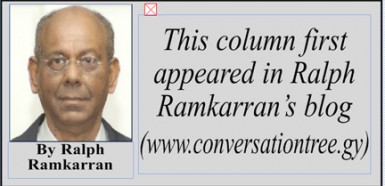
In the 1970s and 1980s enforcement of laws by the police was routine. Taxi drivers were charged for smoking while driving or driving with unclean clothing. Overloaded taxis and private hire cars operating illegally as taxis were relentlessly pursued. There were no speed guns but drivers who were caught speeding were charged with careless driving.
The owners or drivers of private cars were not spared. Not stopping at major roads, careless and dangerous driving and other jeopardies faced motorists. Cyclists knew that they were taking chances if they rode without brakes, a bell or without a headlamp at night. If caught charges were inevitable. Quick justice was once administered when I was caught by a plainclothes policeman riding without a light just as it was getting dark. He took out the valve stem from one wheel and threw it away. Even with a more effective enforcement regime at that time and far fewer vehicles on the road, road deaths were among the highest in the world.
At the present time, police enforcement of traffic laws has collapsed. The shortage of policemen is a problem. But somehow policemen are available to lurk near to major roads or stop lights or to carry out ‘exercises’ where motorists are stopped and their papers checked. This is now a national joke.
There is an urgent need for a non-governmental organization to agitate independently for attention to be paid by the authorities to reducing road accidents. There is no reason why such an organization cannot be supported by the government or even organized or fully or partially funded by it.
This would be necessary because it would be unlikely that such an organization will be able to attract enough independent resources to be able to make an impact on government and public opinion by the dissemination of views and studies and demands for action based on them. If managed independently and transparently, government influence need not prevail and such an NGO could be the catalyst for serious and consistent action to reduce road deaths. An NGO that is a poodle of the government would be a waste of time.
The first of the two major problems that needs to be tackled is speeding. Exhortations on billboards and the use of a few speed guns by the police force is about all that is being done. They are clearly not working. Motor vehicles whizz past policemen and police stations at top speeds without fear by the drivers that they will ever be stopped.
And let’s face it, they know that if they are, all it will cost them is a ‘malta.’ An NGO properly resourced and working closely but independently with the authorities can devise policies to implement that can begin to tackle this problem. But unless the government is prepared to fund programmes and improvements, nothing will happen.
And not everything works. I agonized year after year when the PPP governments failed to pass the seat belt law. Eventually when it happened in 2009, I expected a reduction in road deaths. But nothing happened!
The second major problem is drinking and driving. It is not known if the authorities have ever considered restricting the number of liquor licences being granted and strengthening the requirements. There is no legal requirement for notices warning against drinking and driving to be placed in bars or liquor restaurants. If cigarette packets require such notices, why not places which sell liquor?
There is no education or encouragement about the designated driver system which took hold many years ago overseas. It should be no problem for a major and sustained campaign to be funded by the government to educate and encourage groups to have a designated driver and place appropriate notices in public places, including drinking places. Finally, penalties for all traffic offences need to be upgraded and licences need to be suspended or revoked.
None of this will work unless the Police Force strengthens its traffic enforcement capacity. To be frank, that capacity has long disappeared. It has been defeated by the culture of kleptocracy which has enveloped Guyana over the years, to such an extent that little can be done or achieved without paying obeisance to the culture, which flourishes without hindrance. Short-term, stopgap, measures like ‘Operation Safeway,’ launched with much fanfare by Prime Minister Nagamootoo and Acting Commissioner Ramnarine, which will not be heard about again after a few weeks, are no substitute for long-term planning and funding which needs to take into account built in measures in road construction.




